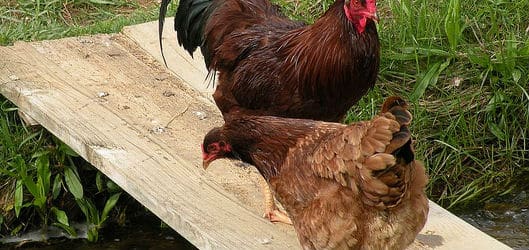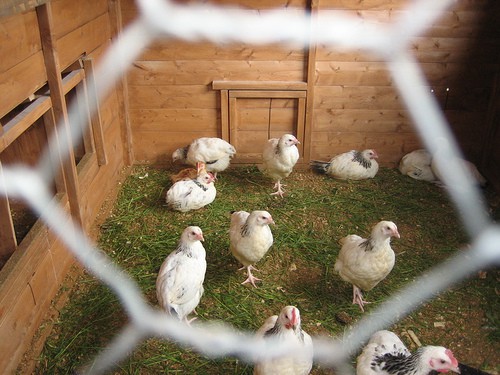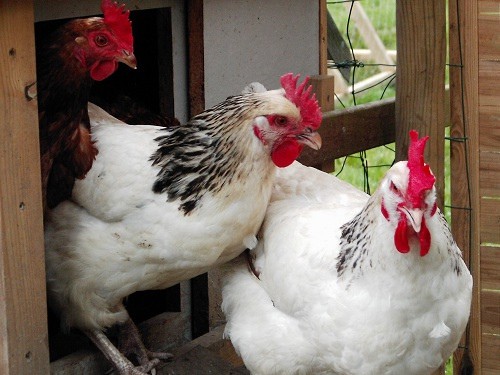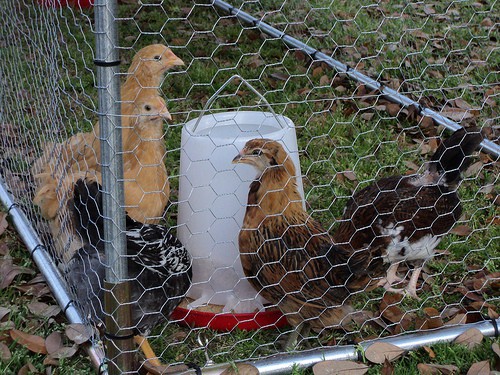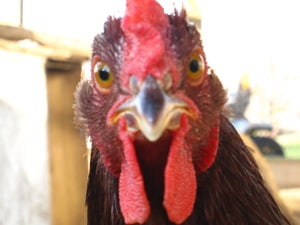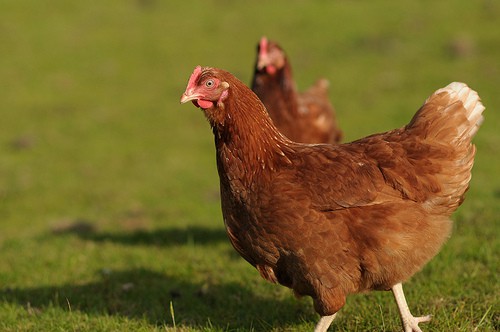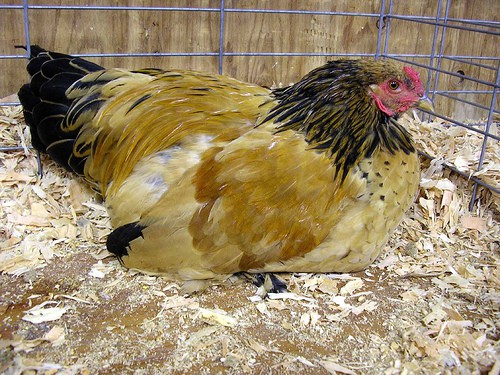Chickens
Bring chickens into your back yard
While a mainstay on many farms throughout the country, chickens are now commonplace in the suburbs. There are many reasons why keeping chickens has become popular in recent times including a supply of fresh eggs and meat. Getting started with keeping chickens requires some attention to meet their needs and keeping the brood healthy and safe.
What do chickens need?
You need sufficient space outside to keep your birds in a coop or shed with an exercise area that allows them to stretch their legs and wings and run around. Not everyone can keep chickens as it will depend on local rules and there may also be stipulations in your house deeds that restrict the keeping of livestock on the premises.
Chickens need to be kept outdoors. You can buy a coop, make your own, or buy one already made. Every bird needs about 1.1 square metres of floor space (depending on the size and number of birds being kept), a perch about 3 to 5 centimetres wide for standing on, an exercise yard, and a nesting box that should be filled with straw or wood shavings to allow the hens to lay their eggs in safety.
The coop needs to be cleaned out regularly and fresh bedding should be placed in the coop weekly. The housing should have more than one hatch to allow the birds to get in and out without having to crouch or squeeze through. More than one hatch can allow birds to go in and out without being harassed by other chickens.
Keep chickens safe from predators
Chickens should be kept in coops that are dry, warm and well-ventilated. The floor should be covered with straw or wood shavings to allow the birds something to dust bath and forage in. Hens need to be kept safe from predators such as foxes, cats, and dogs. Foxes, for example, can climb fences and dig under wire enclosures. It is best to ensure that the enclosure has mesh around all sides and across the top. If chickens are free range, try to ensure that all of the birds are closed in at night. Make sure that the coop is secure and that there are no holes or damaged doors or hatches.
The fence should be buried at least 1 metre down and 1 metre out at right angles to prevent foxes simply digging to the base of the fence and getting in. A hungry fox can soon enlarge a hole in the mesh so always check it regularly for damage.
You should try to eliminate vermin from around the coop. While chickens may kill mice, rats are more troublesome and can contaminate feeding containers.
Watering and feeding your chickens
You should always feed chickens on food specifically designed for them to ensure that the birds stay healthy. Try to avoid feeding them kitchen scraps. Hens like to scrape around in the dirt looking for roots, seeds and insects. A balanced diet is required to keep them healthy and ensure that the hens receive the correct nutrition. Chickens need access to grit, which are small stones that help them digest their diet. You can buy grit to place in with the birds. It is also necessary to provide a constant supply of fresh water for the birds to drink. Drinkers should be safe for young birds to prevent them drowning. Make sure water is available during the winter, which may require more frequent changes of containers to ensure the birds have access to water. Containers for food and water should be sturdy so that the birds do not knock them over or contaminate them with droppings and dirt.
Choosing and buying chickens
Chickens can be bought at any age from fertilised eggs to incubate to young chicks through to adult birds. If you do not have an incubator or equipment to hatch eggs and keep young chicks healthy, then it is best to get older chicks that are about four or five months old. From this age, the young birds are much easier to look after and they are starting to lay their own eggs.
There are many different breeds of chicken available. There are common breeds such as the Rhode Island Red that are easy to obtain, are prolific egg layers and are easy to care for. There are also rare breeds that are available in different sizes and colours.
You may buy your chickens from a local farmer or a specialist breeder. Ensure that all birds are healthy, with appropriate certifications from a vet where appropriate. Do not introduce new birds to an existing flock unless they have been checked to prevent any diseases being spread. All birds that you buy should have glossy feathers, no peck marks, a fleshy red comb on their heads, bright eyes, and lively.
Produce from chicken
You can easily receive eggs daily from three or four chickens. A hen can lay up to one egg daily, so you may have to give eggs away or destroy excess ones. You may be able to sell chicken eggs, but check local regulations on this before doing so, as there may be restrictions. Nest boxes should be provided that are lined with straw; they should be dry and free from draughts.
If you are keeping your chickens for meat, then you will need to be capable of slaughtering them humanely. If you are not able to do this, please discuss how to do this humanely with your local vet or butcher.
If you run a rooster with your chickens, then you will be able to consider raising some of your own hens. Chicks will hatch that are male and female, so you will need to consider what to do if you only want to keep hens for laying.
Diseases affecting chickens
There are diseases that affect chickens such as lameness, infectious bronchitis and avian influenza. Some of these are very serious and must be reported to the relevant authorities. If you have any concern over the health of your brood, then you must inform a vet immediately. Some diseases may place restrictions on the transport, breeding and keeping of chickens in your area.
You can reduce the opportunity for disease by frequently disinfecting your coop to remove parasites such as mites and lice and kill off harmful bacteria. Chickens should also be wormed regularly.



